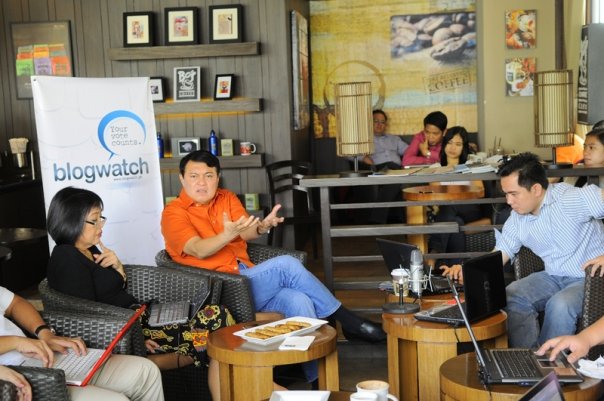13 Reasons Aquino’s DAP is Worse than the PDAF
by Dean de la Paz
As morning broke following the decision of the Supreme Court (SC) declaring the Priority Development Assistance Fund (PDAF) and similar provisions of lump sum discretionary disbursement from the Malampaya Fund unconstitutional the public was ecstatic and forward looking. Even in our deeply damaged political culture, sometimes the public interest triumphs notwithstanding dilatory and squid-like sabotage attempts from the legislature or the executive branches.
The SC reflected the righteous aspirations of a public nauseated with systematic self-dealing as it abused the principle of separation of powers on one end and fattened a decrepit practice of largesse and patronage on another. While it simply decided on the constitutionality issue, the decision was a welcome remedy where both the Executive and the Legislature were dilly-dallying, playing the blame game, yet spawning their own, busy disguising the pork barrel, self-delusional that they might perpetuate the deceit by dressing up the pig and teaching it to sing.
Benigno Aquino III claimed he abolished the PDAF. He did not. He has no powers to do so. On the opposite end of the conspiracy, congress said they had foregone their PDAF allocations or would re-channel these away from non-government organizations to directly appropriate to line agencies. They continue to wield sine qua non “recommendatory” powers, even suggesting that their tomfoolery be perpetuated under a novel so-called single-purpose lump sum allocation that they claim the SC decision does not cover.
The public isn’t biting. That’s just like calling a pig a hog. It’s still subject to patronage. It’s still lump sum. It’s still discretionary. It’s still a violation of the separation of powers. And, worse, it’s still subject to the preferential whim and political whine of pigs.
Aquino is dead wrong when he said that this was about corruption. That’s not only the shallowest analysis of the pork barrel problem but unfortunately, that is also way too simplistic and compels acting only on aberrant superficialities. Failing to recognize profound inherent flaws, both palliatives from Aquino’s to congress’s do not do away with the insidious patronage system inherent in the pork barrel system. Worse, both are apparently palliatives designed to primarily placate.
The High Court had tactfully laid the basis for their decision not simply on two specific statutory infernal creations that sought to institutionalize an aberrant practice but the court focused on the fundamental concept of a “Pork Barrel” as it had evolved, defining it primarily as a question of proprietary powers, and only secondarily citing the PDAF and aspects of the Malampaya Fund’s abuse as applications of the deeply encompassing pork barrel system. Corruption was not even a primary concern much less thematic in the decision.
A rather brief albeit definitive and contiguous reference to similar creations and perhaps postmortem ghostly resurrections was included and here quoted verbatim so there can be no disputing what the people via their Supreme Court wanted. Any reincarnation or variation of the pork barrel are unconstitutional and this covers “all informal practices of similar import and EFFECT (caps provided), which the court similarly deems to be acts of grave abuse of discretion amounting to lack or excess of discretion.”
Thus, any malversation that reeks of double-dead pork is still double-dead pork.
This includes the Disbursement Acceleration Program (DAP) where billions are drawn and then diverted from one branch of government and, as the systematic abuse of the separation of powers and excess discretions go, are effectively malversed to an altogether different branch where they have no business, and there, be subject to whim and whoring by party-mates, political suck-ups and sycophants. Thus the SC decision should strictly apply as jurisprudential precedent or direct reference.
Unfortunately, because the Executive Branch and the legislature are populated with pork barrel kings, princes and smart-ass lawyers, there is no guarantee that, where the loot are multi-billions in diverted DAP, these crooks will not slither off to resurrect the dead.
On the DAP, Malaca?ang bases their indiscretion on jurisprudence that allows for a redistribution of unused allocations or savings derived from efficiencies to similar expenditures or to within the agency that created such savings. The proviso is understandable should funds pursue basically the same objectives under the same agencies or offices tasked under the General Appropriations Act (GAA).
Aquino’s DAP, however, malverses across, not just agencies, but leapfrogs the widest political span, it’s transgressions, violating constitutional barriers, checks and balances, traversing branches of government and then, just as the unconstitutional PDAF does, reposes billions of expenditure powers on a party-mate who, under the separation of powers principle, has, constitutionally, no business dipping into GAA implementation after the GAA has been passed.
In that, the DAP shares the PDAF’s corrupted DNA but effectively violates more than legalities.
If in the Napoles issue there are ten billion reasons to junk a constitutionally criminal concoction, then, if the reports of Php 13 billion diverted via the DAP to fund the fanciful whims and financial wherewithal of party-mates and friends are accurate, then there are 13 billion reasons to hold crooks criminally responsible.
Of the thirteen billion, thirteen show why the DAP is worse than the PDAF.
1. The DAP was not created by any law.
2. The transgressions diverting from an allocation fully-debated and viable, to one, unlawful and whimsical, is an alchemist’s concoction that bypasses and usurps congressional oversight.
3. The DAP diverts across departmental frontiers, distorts the budgetary process and violates requisite limitations and checks and balances of a three-branch democracy.
4. The DAP amount is infinitely larger than the Php 10 billion PDAF scandal as its only limitation is the GAA and the greed of blood-sucking political vermin.
5. Because the DAP funds can be sourced and sucked from every government agency, no matter how small, the DAP money pit is effectively limitless.
6. The credibility of the DAP rests with one individual thus surrendering to personality-based politics.
7. The DAP is subject to whim.
8. The DAP steals from productive usage and diverts to where the primary benefit, when under a solon’s control, is that solon’s political image.
9. The DAP is open-ended following neither systematic productive expenditure nor viability.
10. The DAP makes every tax payer centavo paid vulnerable to political abuse.
11. The DAP was disguised as “savings” thus hiding it’s utility in the patronage toolbox.
12. The DAP is not subject to line-item budgeting as is the criminal PDAF.
13. Contrary to official claims, data shows the DAP has not pump-primed the economy.


